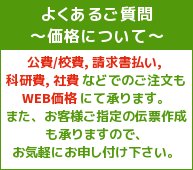Disruptive Technologies and Muslim Societies
◆World Scientific 年末セール開催中!:2025年12月21日(日)ご注文分まで
※上記表示の販売価格は割引適用後の価格です 出版済み 3-5週間でお届けいたします。 Title: Disruptive Technologies and Muslim Societies Subtitle: From AI and Education to Food and Fintech Author: Shahid Jameel, David C Clary Publisher: World Scientific ISBN: 9781800616288 Cover: HARDCOVER Date: 2025年03月 DESCRIPTION This edited volume brings together leading experts to explore the impact of disruptive technologies across a spectrum of Islamic countries and Muslim societies. Spanning artificial intelligence, science and technology, health and education, food systems, and fintech, the seventeen chapters of this collection offer a diverse array of perspectives. Contributors to this volume from across the world ? including Islamic countries such as Malaysia, Morocco, Pakistan, Qatar, Saudi Arabia, and Turkiye ? provide in-depth analyses, revealing how disruptive technologies are transforming Muslim societies, and the subtle nuances shaping their impact. Together, the chapters show that these technologies tend to drive substantial change in Muslim societies, but the nature and extent of these shifts vary, sometimes mirroring developments in the West but often diverging due to distinct cultural and ethical contexts. An essential resource for scholars, policymakers, and practitioners, this book offers valuable insights into the evolving technological landscape of the Islamic World. TABLE OF CONTENTS About the Editors Introduction (Shahid Jameel and David C Clary) Artificial Intelligence: Islam and Decentralized Artificial Intelligence Systems: Ontologies and Common Sense (Biliana Popova and Mazhar Ali Bari) Muslim Societies and the Rise of Artificial Intelligence: Impacts, Challenges, and the Way Forward (Muhammad Adil Iqbal and Najimdeen Bakare) Leveraging Historical Responses and Islamic Perspectives for AI in 21st-Century Healthcare in Muslim Societies (Ajwah Nadeem, Noor Sabah Rakhshani, Kamran Aslam, and M Imran Khan) How Artificial Intelligence is Changing Newsrooms (Subhra Priyadarshini) Science and Technology: Fossil Fuel Decarbonization and Plastics-Waste Conversion to Hydrogen and High-Value Carbons: Pure Science Behind Two Emerging Disruptive Technologies (Peter P Edwards, Tiancun Xiao, Hamid A Almegren, Benzhen Yao, Michael Jie, Daniel R Slocombe, and Jon R Dilworth) Waste to Value Technology: The Key Enabler for Sustainability in Muslim Societies (Erfan Ibrahim) Toward a Geospatial and Temporal Experience of Islamic Architecture: Caravanserais of Anatolia (Guzden Varinlio?lu and Ozge Borekci) Health and Education: The Great Promise and Potential Perils of Genome Editing for the Islamic World (John Parrington, Ali Alhoshani, and Ali Hanbashi) Digital Technologies for Improving Pregnancy Care (Jane E Hirst) How the COVID-19 Pandemic Impacted Learning in Islamic Countries (Shahid Jameel) Disruptive Innovation and Muslim Societies: The Need for Reforms in Higher Education (Ahmad Fauzi Ismail, Muhammad Abd Hadi Bunyamin, Mahani Stapa, Rosli Md Illias, Jaffrey Samsul Bahrin, Rohaizan Khairul Anuar, and Nurul Amrie Abdullah) Food Systems: Food System Innovations to Feed a Growing Global Muslim Population (Sophie Attwood, Eman Alkhalawi, and Cother Hajat) Food System Transformation: A Society-Based Approach (Saher Hasnain) On the Consumption of Blood-Based Foods in Light of Two Old, Yet New, Legal Cases (Nour-Eddine Qaouar) Fintech: Fusion of Blockchain and Islamic Fintech: Unlocking New Possibilities in SME Financing, Financial Wellbeing, and Trade Financing (Ahmet Faruk Aysan and Muhammad Fazlurrahman Syarif) The Potential Applications of Artificial Intelligence in Managing Zakat Funds (Kinan Salim, Wan Nuriqlima Wan Mohd Noor, and Shamsher Mohamad Ramadili Mohd) An Analysis of Disruptive Technologies in Muslim Societies: Economic, Financial, and Ethical Implications (Erdal Haruno?ullari)

|
||||||||||||||||||||||||||||||||||||||||||||||||
























